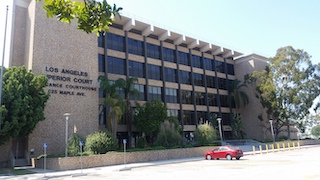You or a loved one may have been arrested for negligent discharge of a firearm, a violation of Penal Code § 246.3. It would be understandable to have some anxiety about punishment, as a firearm can be a dangerous thing and if someone accidentally shoots a round, or rounds, without doing so in a careful manner, there is great potential for injury or death to others. Is prison mandatory? What are the defenses?
Brief Synopsis: Penal Code § 246.3 makes it a crime to willfully discharge a firearm in a grossly negligent manner that could result in injury or death. While most people will agree that a negligent act cannot constitute a crime, with a firearm, there is a higher duty of care, so a breach of that duty can be filed as a misdemeanor or a felony, depending upon the case facts and the defendant’s criminal history.
The law on negligent discharge of a firearm distinguishes in Penal Code § 246.3(a) between a firearm and a BB gun in § 246.3(b). “Except as authorized by law,” one who “willfully discharges a firearm in a grossly negligent manner that could result in injury or death” violates subsection (a) and faces up to a year in county jail (as a misdemeanor) or, if charged as a felony, up to three years in state prison.
The decision whether to charge someone with this offense as a felony or misdemeanor largely depends upon defendant’s prior criminal history, the facts of the case and the charging protocol of the prosecuting agency (some are nicer, some are “heavier” on charges).
A felony conviction is considered a strike under California’s Three Strikes Law under Penal Code § 1192.7(a)(23), as it qualifies as a crime in which a defendant personally uses a dangerous or deadly weapon. A conviction for a felony version of § 246.3 causes defendant to lose his or her firearm rights for life.
If one discharges a BB gun in a grossly negligent manner that could result in injury or death, the maximum punishment is one year in county jail. If one is convicted of a misdemeanor, one loses his or her firearm rights for ten years.
 Torrance Courthouse
Torrance Courthouse
The defense to this charge is self-defense, but such self-defense must be in response to a reasonable belief that the person is about to be killed or attacked with great force. Self-defense, in other words, cannot be used to get the attention of a person who breaks into a parked car, to stop a fight between people in a park or to cause someone to stop burglarizing a home.
Another aspect of defending against this charge is when defendant discharges a “warning shot” that is in a lightly or sparsely populated area where few people live.
When our office is asked to defend someone arrested or charged with this crime, we are often asked how the police can prove that the firearm was actually shot and if the prosecution cannot prove this, then would the case resolve for a charge of exhibiting or brandishing a firearm (Penal Code § 417) instead?
Our answer is that the firearm usually has some carbon residue from the discharge that can be shown and usually there is a witness to the discharge, often the one who calls 911 in an excited manner. Moreover, many cities, especially in areas known to have higher incidents of crime, have a gunfire detection system that will alert police to a gun being shot and triangulate its location for police to respond to the location. In one of our recent cases, the police recovered the spent round because the discharge was downward into the ground.
As to whether pleading instead to brandishing a firearm or weapon (Penal Code § 417) is better, our answer is no because a conviction to § 417, while a misdemeanor, requires a minimum county jail term of thirty days. If someone has immigration concerns, the mandatory jail term can be significant.
With negligent discharge of a weapon, in contrast, there is no mandatory minimum jail term, even when the case is resolved as a felony. Our office has resolved every case we have handled for this without jail or prison time and sometimes, just with an obligation to pay a court fine and agree to surrender the weapon. In other cases, our client has also had an obligation to take a firearm safety course and perform community service or Cal-Trans.
For more information about firearm issues, please click on the following articles:
 Torrance Courthouse
Torrance Courthouse